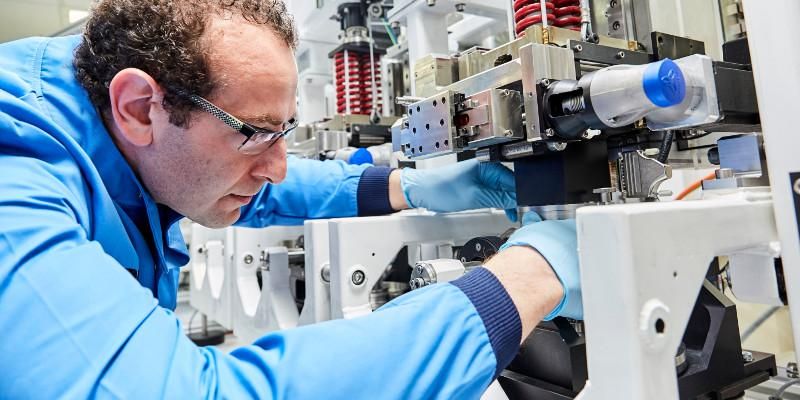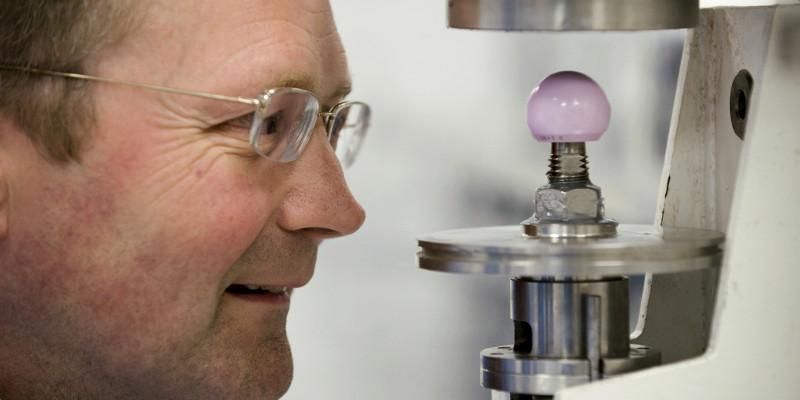
Solving the challenges which hamper Yorkshire’s medical technology experts when they attempt to bring innovative products to market is the focus of a new partnership.
The Grow MedTech partnership, backed by £9.5m of funding, will build on the distinctive cluster of medical technologies expertise in the Leeds and Sheffield city regions. It will address issues that can block the process of commercialising products and bringing them from conception to clinical use.
Six northern universities are among more than 20 partners in the three year project, which is led by the University of Leeds. Other participants include the local enterprise partnerships serving both city regions, National Institute of Health Research organisations, councils and chambers of commerce.
The partnership has been backed by Greg Clark, Secretary of State for Business, Energy and the Industrial Strategy, who said: “Through the Industrial Strategy, Grand Challenges and the funding announced today, we are helping turn innovative new ideas into products and services which could help change our lives and keep the UK as a world leader in developing the products of tomorrow.”
Financial backing for technology
By supporting and financially backing researchers and developers to take new products through the early stages of commercial development, the partnership expects to bring about 20 potentially life-enhancing devices into everyday use during the next three years.
The process will include taking the business risk out of early stage projects and providing proof of commercial concept funding, giving investors and businesses confidence that they have a realistic chance of success.
It will also support clinical evaluation to secure regulatory approval, essential for projects to be commercialised.
“We are bringing the best minds in engineering, biology, design and manufacturing together with industry to improve the quality of life for people across the world.”
Support throughout the development of devices and products will enable universities to commercialise more medtech intellectual property and work more effectively with businesses and investors.
Together they will be better able to progress opportunities which will increase the competitiveness of UK medtech on the global stage.
Dr Josephine Dixon-Hardy, Director of Medical Technologies Innovation at the University of Leeds, is leading the delivery of the partnership. She said: “We are bringing the best minds in engineering, biological development, design and manufacturing together with industry to drive products into everyday use to improve the quality of life for people across the world.
“Our region already has an acknowledged reputation as a leader in this field – we plan to consolidate and extend that and provide the underpinning support needed to take new inventions through the important regulatory and testing processes needed to get them to market.”
Working with business
 Grow MedTech will be supported through Nexus, the University of Leeds’ innovation and enterprise centre, which is due to open in September and will be the gateway for business to access academic expertise and facilities across the University.
Grow MedTech will be supported through Nexus, the University of Leeds’ innovation and enterprise centre, which is due to open in September and will be the gateway for business to access academic expertise and facilities across the University.
Nexus will offer services including incubation areas, lab spaces, meeting facilities and dedicated staff whose role is to facilitate productive working relationships between academic experts and business, in a brand new £40m building on the University campus.
Future trends
Previous research has identified that the most significant trend in future health care product innovation is the combination of different technologies. The partnership will pay special attention to supporting this area of growth.
Examples of technological convergence include connecting robotics and medical imaging systems to automate surgical procedures, and digital health and smart drug delivery services.

Professor John Fisher (pictured above), Director of the EPSRC Medical Technologies Innovation and Knowledge Centre, at the University, is the project’s academic lead.
He said: “The rate of change associated with technology convergence at the moment is unprecedented, and the UK medtech sector needs to transform to exploit this opportunity.
“We aim to lead this change in the UK, recognising the need for greater collaboration between researchers, industry and the wider healthcare sector, and the growing value of multi-disciplinary knowledge and skills across the med-tech sector. The programme will deliver growth in the economy and benefits to the health and care services”.
Better understanding
On a practical level, the partnership’s approach will involve:
· Working with companies to better understand technology development and innovation needs
· Encouraging collaboration between clinicians, patients, and the NHS
· Identifying challenges and priorities for the sector
· Strategically matching researchers and companies to create combined technologies which are primed for development.
Dr Dixon-Hardy added: “Ultimately, Grow MedTech will result in faster deployment and wider adoption of new technologies to bring about better patient care and safer more effective and more efficient health and care services.”
Grow MedTech is led by the University of Leeds, in partnership with Sheffield Hallam University, Leeds Beckett University, the University of Bradford, University of Huddersfield and University of York, all of which have significant strengths in medical technologies research and development.
It is part-funded by Research England, which has contributed just under £5million through the Connecting Capabilities Fund. The remainder of the funding is provided by the partner organisations.
“Universities have stepped forward in this project to show that they can do world class commercialisation, alongside world class science.”
David Sweeney, Executive Chair of Research England, said: “In the Industrial Strategy, the Government asked us to improve our ability to turn exciting ideas into commercial products and services. Universities have stepped forward in this project to show that they can do world class commercialisation, alongside world class science.”
The partnership is intended to bring together the extensive resources in Leeds and Sheffield city regions to stimulate a more dynamic medtech cluster. This will help position UK companies to address forecast medtech market growth opportunities of £10-30bn per annum for UK industry in the next five years.
Further information
For media enquiries email the University of Leeds Press Office at pressoffice@leeds.ac.uk.
Organisations, businesses or researchers who would like to find out more about Grow MedTech should complete the contact form
Grow MedTech is closely aligned with the recently published UK Government’s Life Sciences Industrial Strategy, which highlights the role of medical technologies as a driving force for the UK economy.
The partnership is a result of the Medical Technologies Science and Innovation Audit, led by the University of Leeds and published by the Department for Business, Energy and Industrial Strategy in September 2017. It also supports the Office of Life Sciences Industry Strategy and the Med-tech Sector Deal, and the Inclusive Industry Strategy for the Leeds City Region.